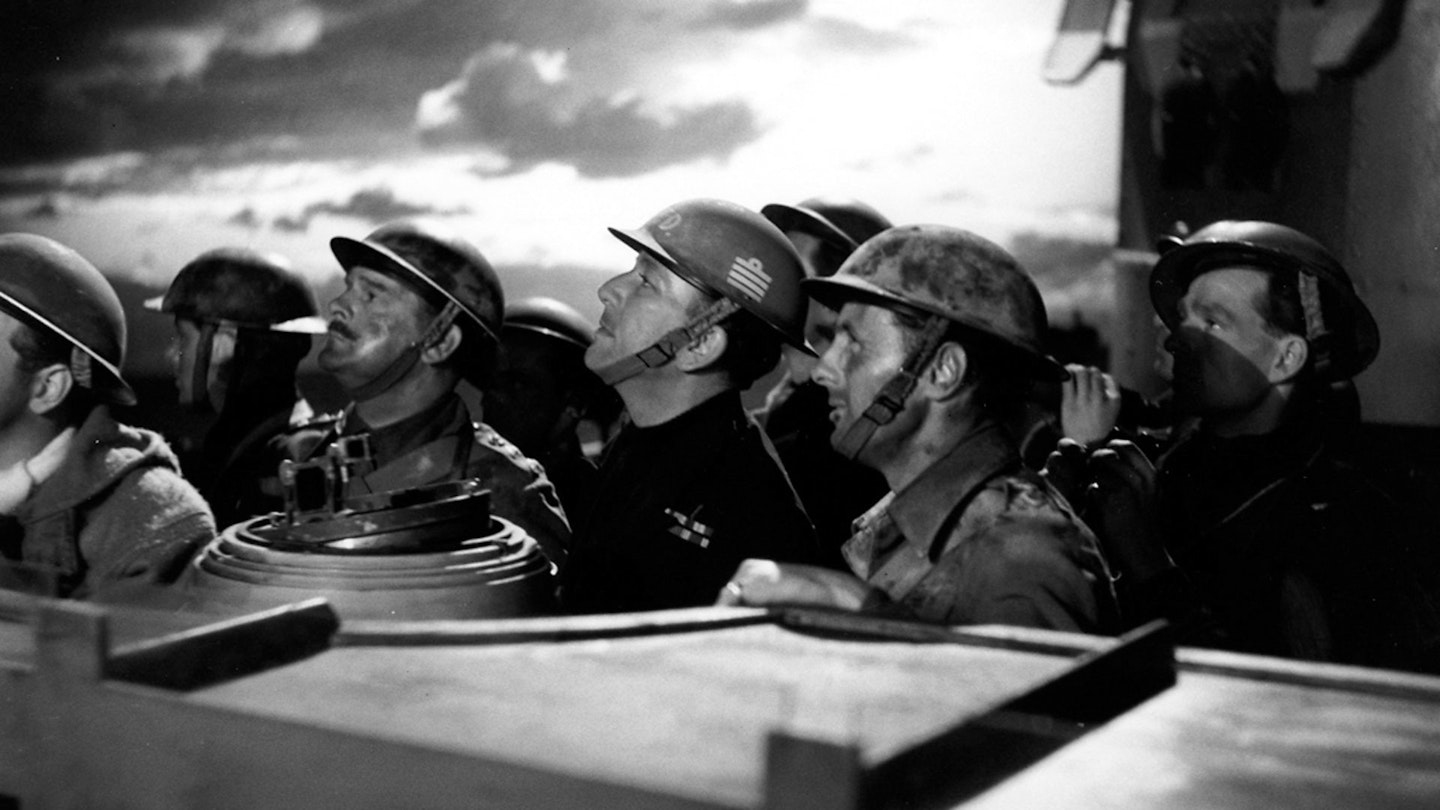Commissioned by Anthony Havelock-Allan and Filippo Del Giudice to make a war film on a subject of his choosing, Noel Coward selected a naval story based on the exploits of Lord Louis Mountbatten aboard HMS Kelly. In addition to writing the screenplay, Coward also agreed to star. However, he recognised his cinematic inexperience and invited seasoned editor David Lean to act as his co-director. It proved to be a wise decision, as it was Lean's contribution (which was largely overlooked by contemporary critics) that has made this stiff-lipped flagwaver so durable.
Coward's initial script ran long. So, he devised the idea of flashing back from the scene of HMS Torrin's sinking to salvage his more emotive Home Front sequences and emphasise both the human side of conflict and the aspects of everyday life that were so worth fighting for.
However, the producers were keen to make the picture even more inclusive and Havelock-Allan and cinematographer Ronald Neame compiled the semi-documentary opening (narrated by Leslie Howard) in which the ship is built, fitted and launched to acknowledge the efforts of those working in vital war industries. Moreover, this approach bound the film into the tradition of items like Target For Tonight, which sought to boost morale with a restrained approximation of reality rather than through the gung-ho antics that Hollywood had already started to embrace.
Very much a man of the theatre, Coward gave a somewhat stagy display of jaunty heroism (particularly during his clipped Dunkirk speech, which was delivered before a watching Royal Family). However, old hands like John Mills and Bernard Miles, along with such newcomers as Richard Attenborough and Michael Wilding, achieved a more credible sense of classless patriotism that was reinforced during the scenes ashore by Celia Johnson and Kay Walsh.
Coward received a special Oscar citation for his efforts after the feature doubled its $1 million outlay at the US box office. But, his assistant and ensemble have since been recognised as its real heroes.
